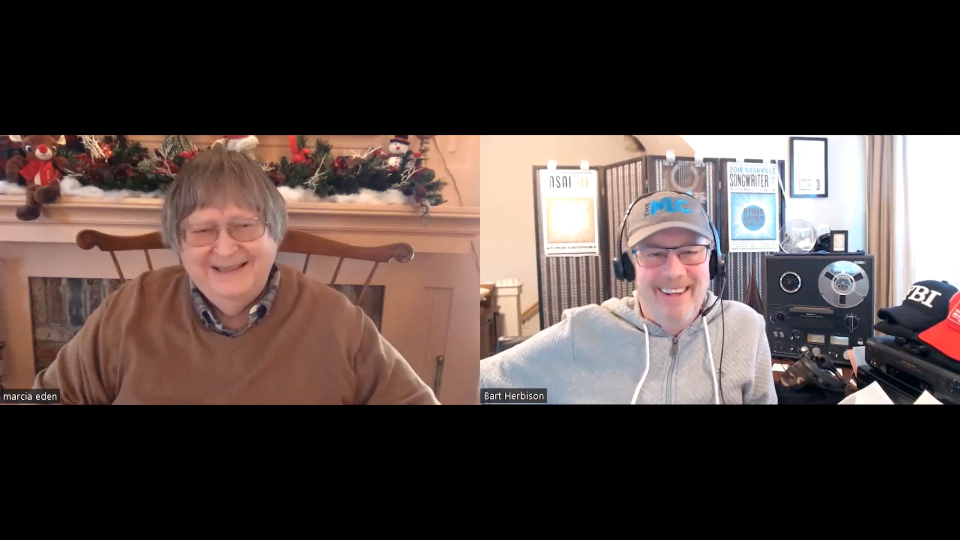Story Behind the Song: Ronnie Milsap's 'What Goes On When the Sun Goes Down'
- Oops!Something went wrong.Please try again later.
- Oops!Something went wrong.Please try again later.
"What goes on when the sun goes down/ Makes the every day life of two people in love go round," Ronnie Milsap sang on his 1976 hit "What Goes On When the Sun Goes Down."
The song came on the heels of the country star's 1975 hit "Daydreams About Night Things," which is also about two lovers waiting through the workday to return to each other's arms. The similarities aren't a coincidence, as both were written by hit county songwriter John Schweers.
Schweers shared the story behind the song with Bart Herbison of Nashville Songwriters Association International.
Bart Herbison: I'm the worst singer in the history of the world. But with your titles, John Schweers, I just want to sing: “What Goes On When the Sun Goes Down.” Another great hit for Ronnie Milsap. We did a previous episode on your big Ronnie hit, “Daydreams About Night Things.” That was the summer of ‘75. I think this (song) was out in the winter of ‘76. So did he cut them both at the same time? Because if he didn't, after “Daydreams,” I would have been coming back to you: “What else you got?”

John Schweers: I think they did something else (1975 single “Just In Case”), then they did “What Goes On.” I was reading stuff on the computer the other day, and this guy wrote in and said, “That's my dad's favorite song.” He said, “We were riding down the road one day and (the song) came on. I asked my dad, ‘Daddy, what goes on when the sun goes down?’” (laughs) “He said, ‘Oh son, I don’t know.’” And they drove home!
BH: Well, I asked you this about "Daydreams About Night Things" because the title is a little provocative for then. But you said that never really became an issue because country music was evolving a little bit. (Was it an issue for this song), because that's a little racier song for the time.
JS: It never did come up. Because you know what? I realized that a lot of people work hard...man and wife, and their lives turn around each other because they love each other. And pretty soon, what goes on when the sun goes down turns their world around, and they're just happy. And next thing you know, kids come along. That's the American dream. That's what that song is about.
… I didn't know Ronnie was gonna cut it it. I wasn't writing necessarily for other artists, I just turned it in. Ronnie called me and said, "Man, I love that song,” and that was the next single. And so I'm really blessed, boy. Thank the Lord.
BH: Were those (two songs) pitched at different times? Or did Ronnie get them both at the same time?
JS: I think they were pitched at different times, because Ronnie was on the road. The world changed for him too, like everybody else. He went on tour. Jack Johnson was managing him, who was also Charley Pride's manager, and Ronnie got to open (for Charley) all over the world. He got in front of millions of people that summer, so they were booked full-time.
BH: It's easy to say this now: I can't imagine anybody else being the artist on those songs. And I know they've been re-cut and people have done a good job. And by the way, if people don't understand, (Milsap at the time) is blazing hot. He's the Garth Brooks of the mid-‘70s.
JS: I'd tried to write for Ronnie, but we had like nine writers in the company, and they were working every day trying to get the next single on Milsap. And people were pitching to Tom (Collins, Milsap's producer). And Tom was pretty fair about it. If somebody else pitched a song to Tom and it wasn't ours, and he liked it, and he played it for Ronnie, that's the song they would do. We were writing against the whole town pitching songs. There were three big cardboard boxes of songs that they'd gotten, and so anyway, I was blessed. I didn't have an inside thing. But Tom played all the songs for the artist, and they just picked what they wanted.
BH: Do you ever get to meet Ronnie? Did you ever see him perform either (of your songs)?
JS: Yes, I did. I got to meet him. He's a real nice fella, boy, he and Charley Pride both...And I got to see Ronnie do (my songs) several times and boy, it was just like, “Oh my gosh. Can you believe I'm sitting here, listening to the hottest artist in Nashville doing my song?" I couldn't believe it. But God is good. Let me tell you that, for sure.
About the series
In partnership with Nashville Songwriters Association International, each episode of 'Story Behind the Song' features conversations with Nashville-based songwriters about their most popular cuts. See more of our interviews at www.tennessean.com/music
This article originally appeared on Nashville Tennessean: Story Behind the Song: Ronnie Milsap's 'What Goes On When the Sun Goes Down'

